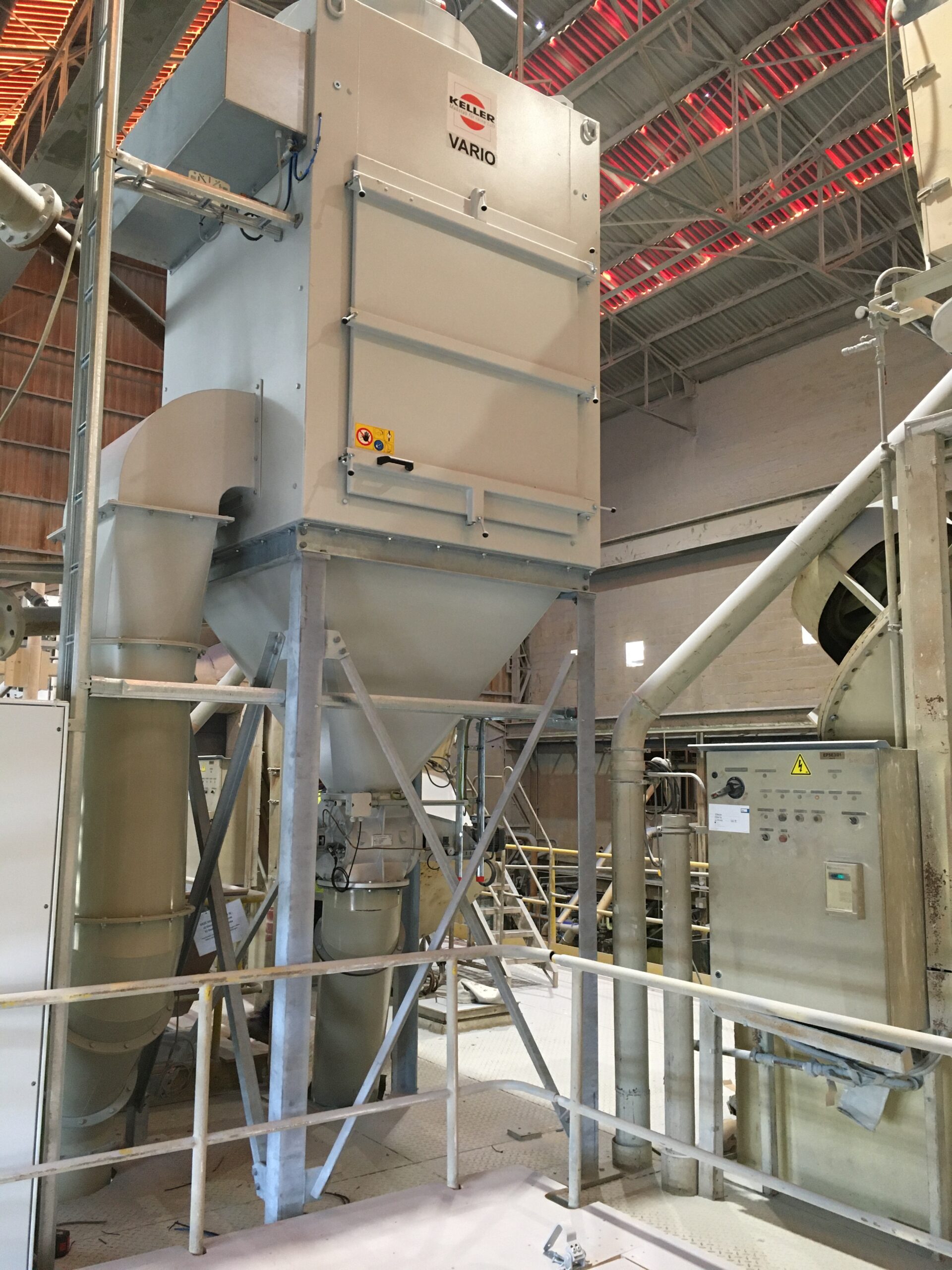Our experts devised a customised solution for dedusting and dust recovery in the production process for enamel. After the successful installation on one production line Prince Belgium decided to adapt the other production lines as well.
Prince is a global player in the market of high-quality additives for niche applications and is the intermediary between large worldwide raw material suppliers and end customers in the market. Prince specialises in the purchase, processing and distribution of products in more than 20 markets. Prince Belgium, based in Bruges, is part of the international Prince group and is a leading global manufacturer of high-quality basic materials for enamel coatings, also called frit or flakes. Each type of frit is custom designed to meet the complexity of process chemistry and end application. Enamel coatings are used in a wide range of applications, such as domestic appliances (white goods), sanitary installations, cookware, industrial applications such as tanks and silos for chemicals, and heat exchangers. The company’s research centre in Bruges specialises in the development of frit and enamel coatings for all these applications.
Identifying the problem areas
At the site in Bruges, dangerous CMR substances can be released in an environment with stagnant air. This is why dust masks are compulsory. Thanks to a series of optimisations and investments, Prince Belgium wants to abolish this in the long run. In consultation with Mensura, the company first drew up a dust map and identified the red areas that require special attention.
Closed-loop solution
Lybover AIR was commissioned to devise a solution in which the dust from the production process could not only be effectively extracted, but could also be maximally reused in a closed loop. Lybover AIR started with the dedusting of one production line. In the meantime Prince decided to adapt also the other production lines and to apply the Lybover AIR solution on all lines. At the start of the project Lybover AIR drew up a principle diagram. On the basis of a 3D scan of the production hall it was possible to visualise the proposed dedusting solution perfectly together with Prince. The working method had a big impact on time, costs and safety. Just think of the quick and extremely correct measurements, the thorough pre-engineering, the smooth assembly and the limited time on site.
Efficient dedusting avoids loss of efficiency
A good dedusting is more than necessary in this production process. Depending on the type of enamel, different ingredients are first brought together in a mixer, where the aim is to obtain a mixture that is as homogeneous as possible. The mixture is transferred to a weighing silo and then a screw transports the mixture to the furnace. The raw materials gradually melt in an enamel bath and the liquid enamel flows down onto two cooling rollers. Cooling rollers ensure that the plates harden before they go into the crusher. It is mainly in this last step that a lot of dust is released. Lybover AIR chose to extract as high as possible, so that only the upward dust is captured, and not the flakes. The dust is reused by recirculation in the buffer silo feeding the furnace. The flakes that come out of the crusher then go through a vibrating screen to the vibrating tower. The vibrating screen ensures that the flakes are well dispersed. In the vibrating tower, the flakes are vibrated upwards. This also gives them time to cool down. The temperature of the flakes must be low enough, otherwise the big bag in which they ultimately end up may degrade thermally and tear open. A sufficient flow rate is therefore important here. After the vibrating tower, a final vibrating sieve with overband magnet removes the metal from the flakes. Finally, the flakes end up in a big bag.
Thanks to the dust abatement solution of Lybover AIR, work can be done in a healthy, safe and dust-free environment. The dust is recovered to a maximum and can be reused in the production process. The big bags will not weaken, fall over or tear open.
